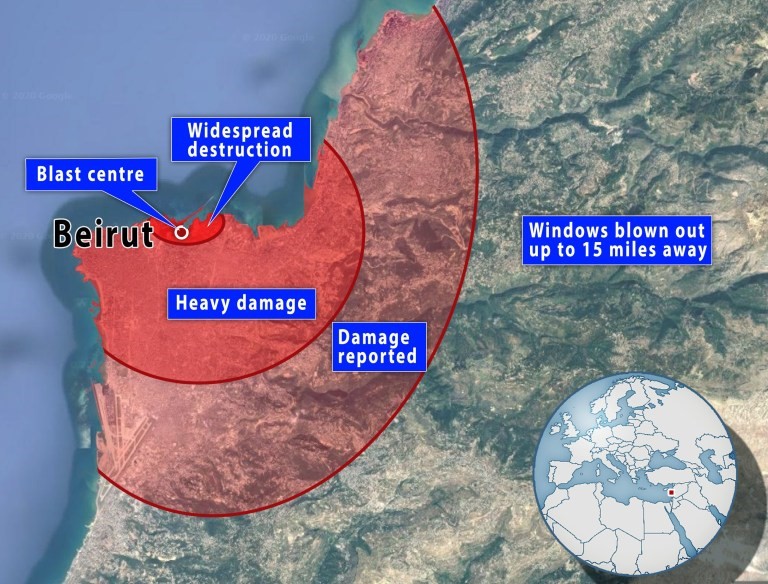
More than 178 people are now reported as killed by the explosion in Beirut with at least 6,000 people injured, and 30 people still missing. On 18 August Lebanon’s Interior Ministry announced a nationwide two-week lock-down (until 06 September) in Lebanon. The damage caused by the blast is widespread and comes at a time when Lebanon is facing economic collapse and in the middle of a second lock-down phase to respond to rising COVID-19 cases. There were 421 new COVID-19 cases recorded yesterday; almost the same number were reported to the day before in Lebanon. The infection and transmission of COVID is increasing with the large number of displaced people in Beirut in the aftermath of the explosion.
Urgent response and ongoing humanitarian assistance in the damaged areas is exempted from the Interior Ministry’s lockdown. Most humanitarian actors will continue providing blast-affected families with the needed support whilst many activities outside Beirut will be put on hold.
There have been ongoing protests in Lebanon which have involved clashes with security forces. 728 civilians were wounded in four days of protests and at least 160 people were transported to hospital. Simultaneously, the Lebanese Parliament declared a two-week state of emergency that gives the Lebanese military extensive powers until 18 September, and also forbids protests. Prime Minister Hassan Diab has also announced the resignation of his Cabinet but will remain active as a caretaker administration until a new Cabinet is formed, which could take weeks or months.
The long-awaited verdict by the Special Tribunal for Lebanon was announced. The Tribunal was formed over ten years ago to investigate the killing of then Lebanese PM Rafik Hariri and 21 others in a 2005 bombing. One of four men accused of killing the former Prime Minister in Beirut has been convicted and he was assessed as being a low-level figure within Hezbollah. The presiding judge of the case noted that there was no evidence to implicate Hezbollah or Syria in the attack, which reduced the possibility of tensions in several areas in Lebanon.
The explosion itself has destroyed the port, and the force of the shockwaves has resulted in the near total destruction of much of Beirut within a 5km radius and widespread damage as far as 20km away. There are 37,000 refugee families living in basic conditions within 5km of Beirut's port. The damage to infrastructure includes offices, residential premises, businesses, hospitals and current estimates of 120 public schools affecting 55,000 children. There are initial estimations suggesting that up to 300,000 people are currently without homes, including 100,000 children. Six hospitals and more than 20 primary health care clinics were damaged by the blast.
The port in Beirut is operating at 30 percent of its normal capacity and 70 percent capacity in Tripoli, where many ships have been diverted. WFP are bringing an extra three-month supply of wheat flour and grains into the country to support any urgent food shortages.
Many more questions remain about how a bankrupt government will pay for the huge reconstruction costs needed in Beirut, a beautiful city already requiring rehabilitation.